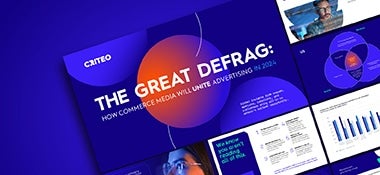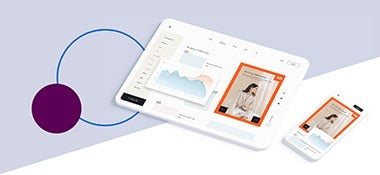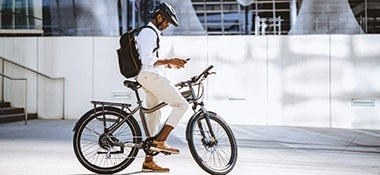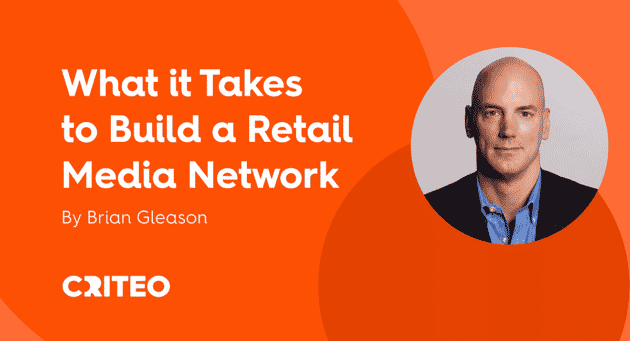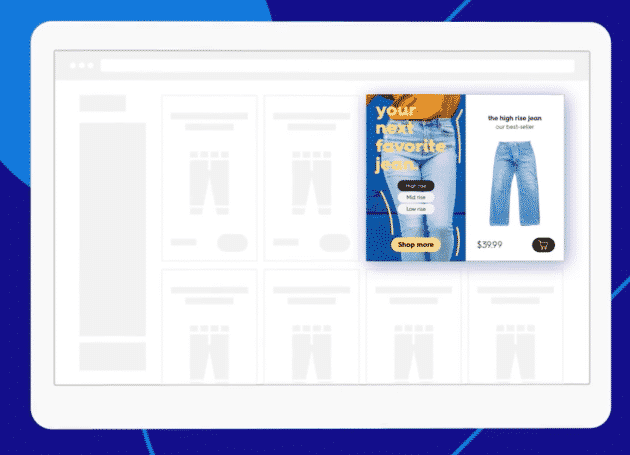Consumer behaviors changed quickly at the start of the global coronavirus outbreak. Businesses shut their doors and consumers were told to stay home, and that meant no more nonessential trips to the store. Consumers shifted to ecommerce and delivery to get the things they needed — such as food, electronics, and clothing — without having to leave their homes.
This created new challenges for businesses. Retailers no longer had an in-store sales channel. Demand for some products and services dropped, such as travel and nonessential items. On the other hand, some industries experienced heightened demand, such as desks, webcams, and computer monitors for remote workers and puzzles and toys for screen-free home entertainment.
Marketers had to make fast decisions to sustain their business while prioritizing the safety of their employees and customers. We caught up with four of Criteo’s clients from around the world to see how they adapted their strategy for the social distancing economy and what advice they have for other businesses:
Online gift card marketplace Raise highlights everyday essentials (US)

Being a strictly online business, gift card marketplace Raise is well-positioned to support shoppers during this time. But, they know consumers’ needs are different now, so they adapted their marketing messaging to better connect with their at-home audiences. For instance, travel gift cards are typically popular during this time of year.
With current travel restrictions, Raise pivoted to sell more everyday essentials such as home goods, DIY materials, home office equipment, and groceries. They continue to monitor various cycles of what consumers need at home and keep their overall marketing strategy nimble to adapt quickly.
Raise has always focused on providing value to consumers, which rings true now more than ever before. They also support local businesses such as restaurants and are trying to mitigate the loss for those local partners due to stay at home orders with a project called “Raise Local.” This helps small businesses sell gift cards to their local community, they can stay open and operating through these challenging times.
The team is also investing in a contactless, secure way to pay for everyday purchases in-store or online through their mobile app, Slide.
Raise uses Criteo to help highlight their brand and products, since buying discounted gift cards isn’t necessarily something that consumers are even aware that they can do, or something they think to do before making a purchase. Criteo keeps Raise top of mind for online shoppers, encouraging them to come back and take advantage of special deals. Alberto Aviles, Senior Manager of Acquisition Marketing at Raise, encourages other advertisers to put themselves in the consumer’s shoes, asking both “what do consumers need?” and “how can you as a marketer connect with their needs and mindset during this time?”
Fashion brand Cordoce plans for the long term while addressing immediate needs (Brazil)
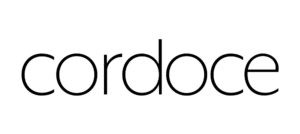 After closing their brick-and-mortar wholesale store, fashion brand Cordoce accelerated the digital transformation of their online retail site to cater to digital shoppers. Given they had already built this ecommerce infrastructure, Cordoce was able to ramp up their online presence with their teams working remotely and safely.
After closing their brick-and-mortar wholesale store, fashion brand Cordoce accelerated the digital transformation of their online retail site to cater to digital shoppers. Given they had already built this ecommerce infrastructure, Cordoce was able to ramp up their online presence with their teams working remotely and safely.
In terms of their marketing strategy, Cordoce put the brand first, taking the time to listen to customers, and even conducting surveys to find out what shoppers wanted in new collections. To better help consumers during this time, the team began offering free shipping as well as discounts. Cordoce also adapted marketing messages to speak to social distancing and activated their network of bloggers and digital influencers to encourage mask donation, which resulted in the donation of 10,000 masks to hospitals and NGOs.
Cordoce’s recommendations for other businesses?
CMO and COO, Camila Ahn, encourages brands to “Re-think logistics and processes, and stay efficient. Always think about the customer experience.” And while it’s important to focus on the most immediate need, try to “think about the long term and adapt actions.” Cordoce has also shifted their relationships with competitors to see them more as partners with whom they can share learnings and best practices.
Cycling equipment brand Ekoï helps customers adjust to indoor riding (France)

For nearly 20 years, cycling equipment brand, Ekoï, has been offering helmets, goggles, clothing and footwear for road cyclists, mountain bikers, and triathletes. Ekoï is an international brand and, as lockdown measures have differed between countries, the team adapted their messaging in countries where physical activity, including outdoor cycling, is still allowed.
In markets with tighter restrictions, Ekoï focused on stay-at-home cycling needs for indoor trainers and apartment bikes. To do this, Ekoï leaned on their partnership with Criteo to help them be more visible across digital channels and address their targeted audiences through display advertising. Ekoï also created exclusive content, including live virtual trainings from professional athletes, to stay close with their community.
Since the majority of Ekoï’s sales occur online, the brand closed the showroom and streamlined their warehouse operations to keep employees safe — only requiring four workers at a time on an alternating schedule. They also provide all workers with hydro-alcoholic gloves and gels, and ensure workers are able to maintain social distancing measures. Furthermore, they offer 100% contactless UPS home deliveries, will make returns possible after the end of the stay-at-home orders, and a customer service available to answer all requests.
Ekoï is also focused on giving back. The team built campaigns where 5% of sales were donated to the Necker hospital (Enfants malades Assistance publique – Hôpitaux de Paris). Furthermore, they donated 1,000 microfiber, mouth-covering necklaces and 150 pairs of Ekoï cycling glasses that were adapted for hospital use to the municipalities of Fréjus and Saint-Raphaël. Furthermore, they are currently also offering up to 10,000 masks which are included in all their delivery packages.
Bathroom furniture brand, Victoria Plum, sparks home improvement imaginations (UK)
 Victoria Plum is an online bathroom retailer based in the UK, known for helping customers achieve their own Little Bathroom Victories through home renovation. To adapt the brand’s marketing strategy and not oversaturate customers with communications, the team increased their display advertising budget with Criteo to focus on increasing site visits to gain traffic now, so they can better retarget those visitors once they come out of lockdown.
Victoria Plum is an online bathroom retailer based in the UK, known for helping customers achieve their own Little Bathroom Victories through home renovation. To adapt the brand’s marketing strategy and not oversaturate customers with communications, the team increased their display advertising budget with Criteo to focus on increasing site visits to gain traffic now, so they can better retarget those visitors once they come out of lockdown.
For other businesses in the home renovation space, the Victoria Plum team recommends planning for the future, rather than only focusing on the short term. Consumers can’t hire contractors in lockdown, but increasing traffic can help drive revenue in the future. With Criteo’s web generation solution, Victoria Plum is seeing significant increases in traffic at a time when awareness can matter more than ever.
Consumers are spending so much time at home that they’re looking at ways to improve their spaces since they’re saving money on things like travel or car expenses. Victoria Plum helps inspire them to move forward with creating the bathroom of their dreams once stay-at-home orders are lifted.
Learning from these marketing leaders
Marketers from around the world and across different industry categories can leverage these insights by recognizing there’s no one-size-fits-all approach during this time. However, based on these insights, it’s important to:
- Understand your audience and recognize what value your brand can bring to their lives now — and in the long term.
- Adjust your messaging to speak to consumers’ unique needs while social distancing to ensure relevance.
- If applicable, highlight products from your catalogue that can be used at home to spark consumers’ imaginations.
For insights on how social distancing is impacting consumer buying behavior visit our Consumer Insights Dashboard.



